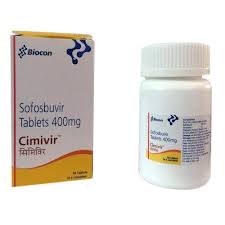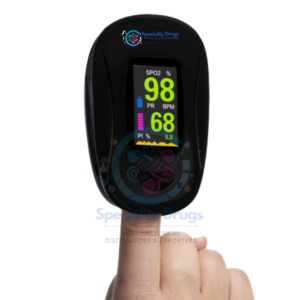What is ACALNIB 100MG CAPSULE ?
ACALNIB 100MG is a prescription medication that contains Acalabrutinib, a targeted therapy drug classified as a Bruton’s Tyrosine Kinase (BTK) inhibitor. It is primarily used in the treatment of certain types of blood cancers. ACALNIB works by blocking the activity of the BTK protein, which plays a key role in the survival and spread of cancerous B cells.
What is the Use of ACALNIB 100MG?
ACALNIB 100MG is used to treat:
-
Chronic Lymphocytic Leukemia (CLL)
-
Small Lymphocytic Lymphoma (SLL)
-
Mantle Cell Lymphoma (MCL) (typically in patients who have received at least one prior therapy)
It is part of a class of drugs that offer a more targeted approach to cancer treatment, often resulting in better outcomes and fewer side effects than traditional chemotherapy.
Benefits of ACALNIB 100MG CAPSULE
-
Targeted Therapy: Specifically attacks cancerous B cells while minimizing damage to healthy cells.
-
Improved Progression-Free Survival: Clinical trials have shown that Acalabrutinib can significantly delay disease progression.
-
Oral Administration: Taken in capsule form, making it more convenient than intravenous therapies.
-
Tolerable Side Effect Profile: Generally better tolerated compared to many traditional chemotherapy drugs.
Adverse reactions associated with ACALNIB 100MG CAPSULE may include gastrointestinal disturbances, fatigue, and dermatological issues. Patients should be vigilant for any concerning symptoms and promptly seek medical advice if experienced. It is imperative to consult healthcare professionals for guidance on the proper use and management of ACALNIB 100MG CAPSULE. Side effects of ACALNIB 100MG CAPSULE may vary in severity and individuals should be aware of these potential adverse reactions.
While ACALNIB 100MG is generally well-tolerated, like all medications, it may cause side effects. Common and serious side effects include:
Common Side Effects
-
Headache
-
Diarrhea
-
Fatigue
-
Muscle pain
-
Bruising
Serious Side Effects
-
Bleeding problems
-
Infections (e.g., pneumonia, sepsis)
-
Heart rhythm changes (e.g., atrial fibrillation)
-
Low blood counts
-
Liver enzyme elevation
It’s important to inform your healthcare provider of any side effects you experience, especially if they are severe or persistent.
Precautions and Warnings
-
Not recommended during pregnancy or breastfeeding.
-
Avoid use with strong CYP3A inhibitors/inducers unless advised by a physician.
-
Monitor for signs of bleeding, infection, or irregular heartbeat.
-
Regular blood tests may be required during treatment.
Note: ACALNIB 100MG should only be used under the supervision of a qualified healthcare professional. Always follow your doctor’s instructions regarding dosage and duration of treatment.
Frequently Asked Questions (FAQs) about ACALNIB 100MG
-
What is ACALNIB 100MG CAPSULE used for?
ACALNIB 100MG is used to treat certain types of blood cancers such as Chronic Lymphocytic Leukemia (CLL), Small Lymphocytic Lymphoma (SLL), and Mantle Cell Lymphoma (MCL). -
How does ACALNIB 100MG work?
It works by inhibiting Bruton’s Tyrosine Kinase (BTK), a protein that helps cancer cells grow and survive, particularly in B-cell malignancies. -
Is ACALNIB a form of chemotherapy?
No, ACALNIB is not traditional chemotherapy. It is a targeted therapy designed to affect specific cancer cells while sparing most healthy cells. -
How should ACALNIB 100MG CAPSULE be taken?
It is taken orally, typically as a 100 mg capsule once or twice a day, as prescribed by a doctor. -
Can I take ACALNIB with food?
Yes, ACALNIB can be taken with or without food. However, it should be swallowed whole with water and not crushed or chewed. -
What should I do if I miss a dose of ACALNIB?
Take the missed dose as soon as you remember, unless it’s close to your next dose. Do not double up. Consult your doctor if you’re unsure. -
What are the common side effects of ACALNIB 100MG?
Common side effects include headache, fatigue, diarrhea, bruising, and muscle pain. -
What serious side effects should I watch out for?
Serious side effects include infections, bleeding, heart rhythm problems (like atrial fibrillation), and low blood cell counts. -
Is regular monitoring needed while on ACALNIB?
Yes, doctors usually recommend routine blood tests to monitor your liver function, blood cell counts, and to check for signs of infection or bleeding. -
Can ACALNIB 100MG be taken during pregnancy or breastfeeding?
No, ACALNIB is not recommended during pregnancy or breastfeeding due to potential harm to the fetus or infant. -
Are there any drugs or foods I should avoid while taking ACALNIB?
Avoid grapefruit and its juice, and consult your doctor before taking other medications, especially CYP3A inhibitors or inducers. -
How long do I need to take ACALNIB 100MG?
Treatment duration varies based on individual response and disease progression. Your oncologist will determine how long you should take it. -
What should I do if I experience side effects?
Report any side effects to your doctor immediately, especially signs of infection, unusual bleeding, or heart-related symptoms. -
Can ACALNIB be taken with other cancer medications?
Sometimes it is combined with other therapies, but only under medical supervision. Always follow your doctor’s guidance. -
Is ACALNIB 100MG covered by insurance or assistance programs?
Coverage varies. You should check with your healthcare provider, insurance company, or the manufacturer for patient assistance programs.






Reviews
There are no reviews yet.